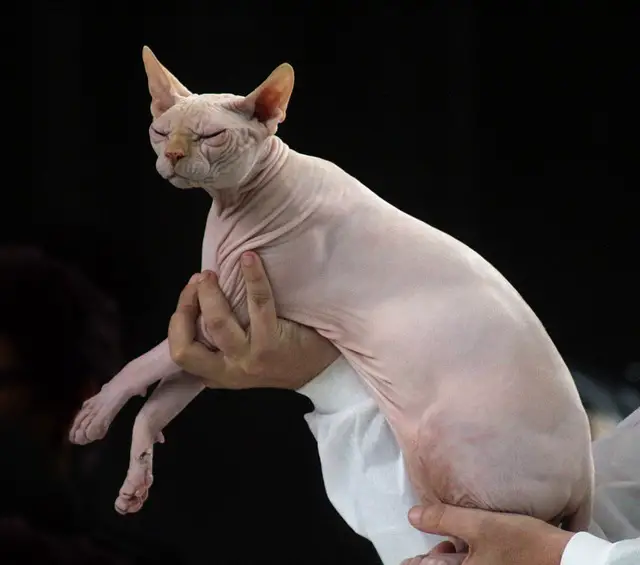Sphynx cats are a unique and popular breed of cat known for their hairless appearance. However, their distinctive look has raised concerns about the ethics of breeding them. Some people argue that breeding sphynx cats is unethical and that the breed should not exist. However, others believe the breed is perfectly ethical, and there is nothing wrong with breeding them.
Those who argue that sphynx cats are unethical often point to the health problems associated with the breed.
Sphynx cats are prone to several health issues, including skin problems and respiratory problems. Additionally, they are more susceptible to sunburn and other skin damage because they lack fur. As a result, some people argue that breeding cats prone to these health problems is cruel.
On the other hand, those who believe that sphynx cats are ethical argument that the breed is no more prone to health problems than any other cat breed. They also point out that many people love sphynx cats and that there is nothing inherently wrong with breeding them.
Ultimately, the question of whether sphynx cats are ethical is complex and depends on several factors, including the individual cat and the breeder responsible for breeding it.
History of Sphynx Cats
The Origin of Sphynx Cats
Sphynx cats are a unique breed that has captured the hearts of many cat lovers. The breed originated in Toronto, Canada, in 1966, when a hairless kitten named Prune was born to a domestic shorthair. Prune was bred with other cats, and the breed was officially recognized in the 1980s. The hairlessness of Sphynx cats is a natural genetic mutation, and they are not related to the hairless cats of ancient Egypt, as is sometimes thought. In fact, hairless cats were first documented in Mexico in the 1900s.
Sphynx Cats in Pop Culture
Sphynx cats have become quite popular in recent years, appearing in movies, TV shows, and music videos. One of the most famous Sphynx cats is Mr. Bigglesworth from the Austin Powers movies. The breed has also been featured in TV shows Friends and The Big Bang Theory. In addition to their on-screen appearances, Sphynx cats have also gained popularity on social media, with many owners sharing photos and videos of their unique pets.
Overall, the history of Sphynx cats is relatively short, but their popularity continues to grow as more people discover their unique charm and personality.
Sphynx Cat Characteristics and Care
Physical Characteristics of Sphynx Cats
Sphynx cats are known for their unique appearance, characterized by their hairlessness. They have muscular bodies with broad chests and long, lean necks. Their ears are large and pointed, and their eyes are almond-shaped and wide apart. In addition, sphynx cats have wrinkled skin that is soft to the touch and comes in various colors and patterns.
Health Concerns of Sphynx Cats
Like all cats, Sphynx cats can be prone to specific health issues. One of the most common health concerns for Sphynx cats is skin problems, such as sunburn and skin infections. They are also at risk for respiratory issues like asthma and bronchitis.
Sphynx cats may also be prone to dental problems like gum disease and tooth decay. Therefore, it is essential for Sphynx cat owners to be aware of these potential health issues and to take their cats to the vet regularly for checkups and preventative care.
Proper Care for Sphynx Cats
Because Sphynx cats are hairless, they require more care than other cats. They need to be bathed regularly to keep their skin clean and healthy. Sphynx cats are also sensitive to temperature changes and may need to wear clothing or be kept in a warm environment to avoid getting too cold.
Providing Sphynx cats with a balanced diet and plenty of fresh water is essential. They also need regular exercise and playtime to keep them healthy and happy.
Additionally, Sphynx cats are social animals and need their owners’ attention and affection. Therefore, they thrive in households with plenty of opportunities to interact with their humans and other pets. Sphynx cats are also intelligent and curious, so it is essential to provide them with toys and activities that will keep them mentally stimulated.
Ethical Considerations of Sphynx Cat Breeding
Arguments Against Sphynx Cat Breeding
Some animal welfare advocates argue that breeding Sphynx cats is unethical because it can lead to health problems for the cats. Sphynx cats are prone to skin infections, heart disease, and respiratory issues. In addition, some argue that breeding.
Sphynx cats perpetuate the idea that animals are objects to be bred for human entertainment and profit rather than living beings with their own needs and desires.
Arguments For Sphynx Cat Breeding
Proponents of Sphynx cat breeding argue that responsible breeders can take steps to minimize the health risks associated with the breed. For example, they can screen cats for genetic disorders, provide proper nutrition and veterinary care, and ensure that cats are not overbred.
In addition, some argue that Sphynx cats can make great pets for people with allergies, as they produce less dander than other cats.
Regulations and Standards for Sphynx Cat Breeding
In many countries, there are regulations and standards in place for cat breeding, including Sphynx cats. For example, breeders may be required to register with a cat breeding association, adhere to certain breeding practices, and properly care for their cats.
In addition, some associations have developed guidelines for responsible Sphynx cat breeding, such as limiting the number of litters a cat can have and requiring regular health screenings.
However, it is worth noting that not all breeders adhere to these regulations and standards, and some continue to engage in unethical breeding practices. As such, potential cat owners need to research and choose a reputable breeder who prioritizes the health and well-being of their cats.
[su_box title=”Affiliate Disclosure”]This website is supported by its readers. Please assume that all links are affiliate links. If you make a purchase from one of the links we will make a commission from Amazon. Thank you.[/su_box]




